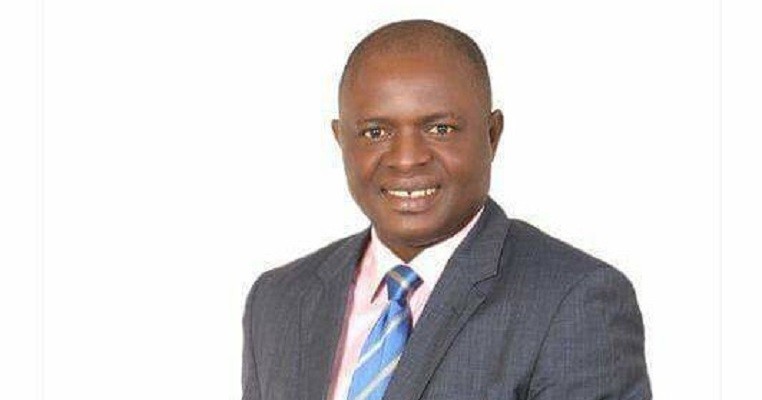Hon Chinedu Onu, a multifaceted entrepreneur and public affairs analyst, Saturday, called on Southeast governors to eschew inter-personal rivalries and collectively move the region forward both in economy and politics.
Onu, who spoke in Enugu on Freedom Square programme of Solid 100.9fm, and monitored by THE WHISTLER, said without such synergy, the Southeast region of the country would continue to remain backward despite its huge material and human potentialities.
Advertisement
On moving the economy of the region forward, Onu said, “Outcomes of various economic committees formed by our governors seem ineffective because real entrepreneurs and stubborn risk takers are not involved; rather professors and armchair theorists are brought in. Again, these committees lack implementation powers.”
On the activities of IPOB and MASSOB, Onu said, “The Igbo race is still treated as second-class citizens. On a level playing field, the Igbo man is better off in the larger Nigeria. Those who cast aspersions on IPOB and MASSOB should find alternatives.”
He also called for immortalisation of Igbo fallen heroes to build the Igbo consciousness. In his words, “We need to discover our destinies. There is a whole lot to do successfully even without the federal government. We are already in trouble because we need to negotiate ourselves in the polity, meaning that there is no equity. That is why I advocate restructuring where regions can develop on their capacities.”
He said there were many instances of marginalisation against the Igbo, including the recent federal government’s rail loan which excluded the eastern corridors, and called on the Igbo not to relent. According to him, “No Igbo man is heading the core ministries and various implementing agencies. Cries won’t take us anywhere. Our governors can seek redress in courts on various issues, such as the federal character as they affect distribution of infrastructure and federal appointments.”
Advertisement
He commended the president general of Ohanaeze Ndigbo, Chief Nnia Nwodo, for taking the Igbo matters internationally, and suggested more collaboration between the Ohanaeze and the Southeast governors. Echoing him, “Ohanaeze should engage our governors to get our national shares. It is a pity that our elders are docile. Where are the Emeka Anyoku’s? Nwodo has been vocal, which is why his tenure has brought Ohanaeze to the epicentre of government. I suggest the establishment of the Ohanaeze Elders’ Forum to champion this cause. Our men are afraid because they want to preserve their positions and future. But these elders have nothing to lose again.”
On the alleged crack in Ohanaeze, leading to attempts to register a new Ohanaeze and subsequent events, Hon Onu said, “We don’t need registration to become a people. The potency of the Nnia Nwodo-led Ohanaeze brought about the attempt to register a new body. Whether registered or not, Ohanaeze remains the highest Igbo decision-making body.”
He said the collaboration of Southeast governors could result in the region dictating the African market, suggesting that investing in existing and indigenous industries in the region would be a springboard. According to him, “The governors can initiate moves to buy equity in Airpeace, Innoson, among others, and gradually streamline our global businesses to the zone. We don’t need to wait for the federal government. Our governors can fix our various dilapidated road networks. They can establish a strategic light-rail project. It is about getting our entrepreneurs and enabling them. Government has no business in running businesses.”
He regretted that Southeast governors allowed projects like the jetty at Ogurugu in Uzo-Uwani LGA of Enugu State to die, which, he said, would have enabled sea transportation from Enugu to Onitsha, adding that they could as well dredge the River Niger with a common vision.
On the agricultural development, Hon Onu regretted that the Southeast governors could not replicate what the late premier of the Easter Region, Dr Michael Okpara, achieved with ‘bare hands’, stating that, “You can’t imagine that Ose Nsukka is packaged and marketed all over the world, and its origin is Nsukka. You can’t imagine how much the federal government uses to import fish into this country according to the Bureau of Statistics when we have the resources in abundance. We should stop selling our raw products. Ebonyi and Enugu can feed the entire West Africa in rice. The concept of developing Southeast is there, but the problem is policy summersaults and sustainability. I commend Enugu and Ebonyi states for their initiatives. However, I bemoan the road dilapidation in Aba despite its industrial potentialities.”
Advertisement
On ways of uniting the Igbo race, Onu said, “There should be a forum emanating right from the town union executives where all Igbo sons and daughters will have common festivities. In that spirit, development funds will be established where people can contribute voluntarily, with people of impeccable character running the funds. Southeast of our dream is feasible in the shortest possible time, but we want to see our leaders take the lead.”
He advised his proposed Ohanaeze Elders’ Forum to have an Igbo development blueprint, where aspirants seeking governorship positions in the region would be made to key into, and should be used to judge them within a specified time. He further regretted that states in the Southeast do not access various counterpart funds, such as CBN Anchor-Borrowers’ Programme, saying their northern counterparts were far ahead in benefitting from those schemes. He also called for the governors of the region to establish their common security front.
On how to improve the education sector in the Southeast, Hon Onu said, “The sector already has a systemic failure right from the family level. Our children lack visions of even what they want to get out of their various courses at higher institutions. We need family re-orientation. Again, our governors should articulate our unique education curriculum where our values, including visions of MI Okpara, would be read at schools.”



